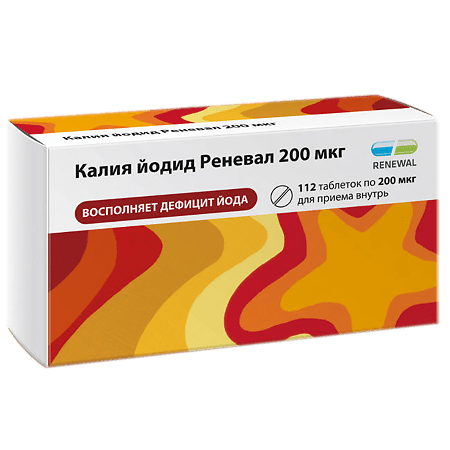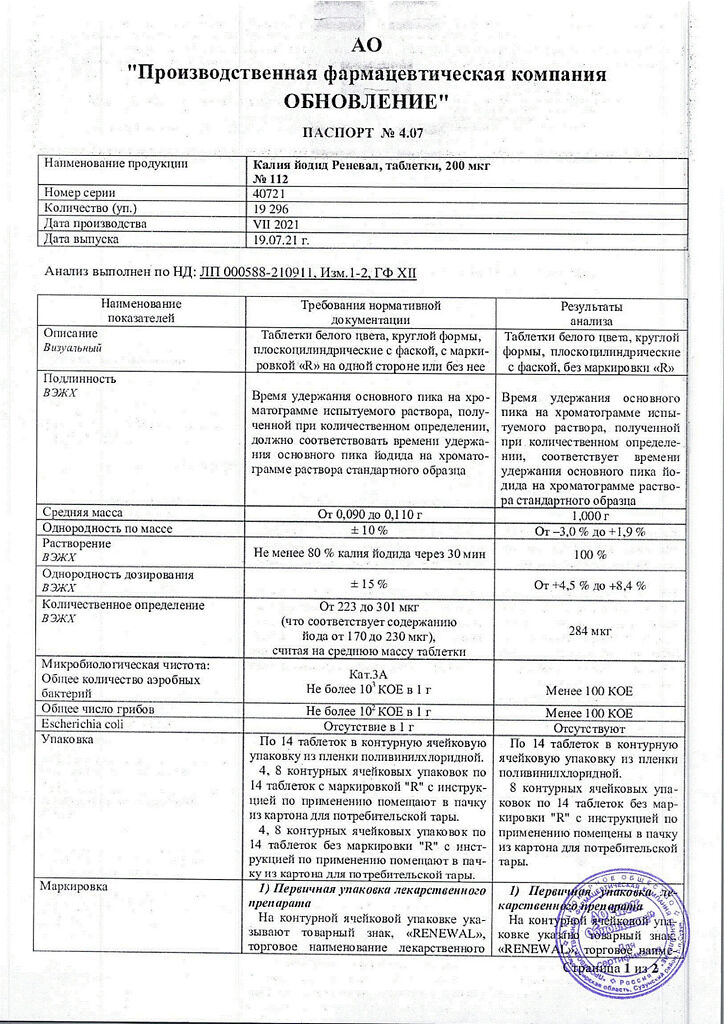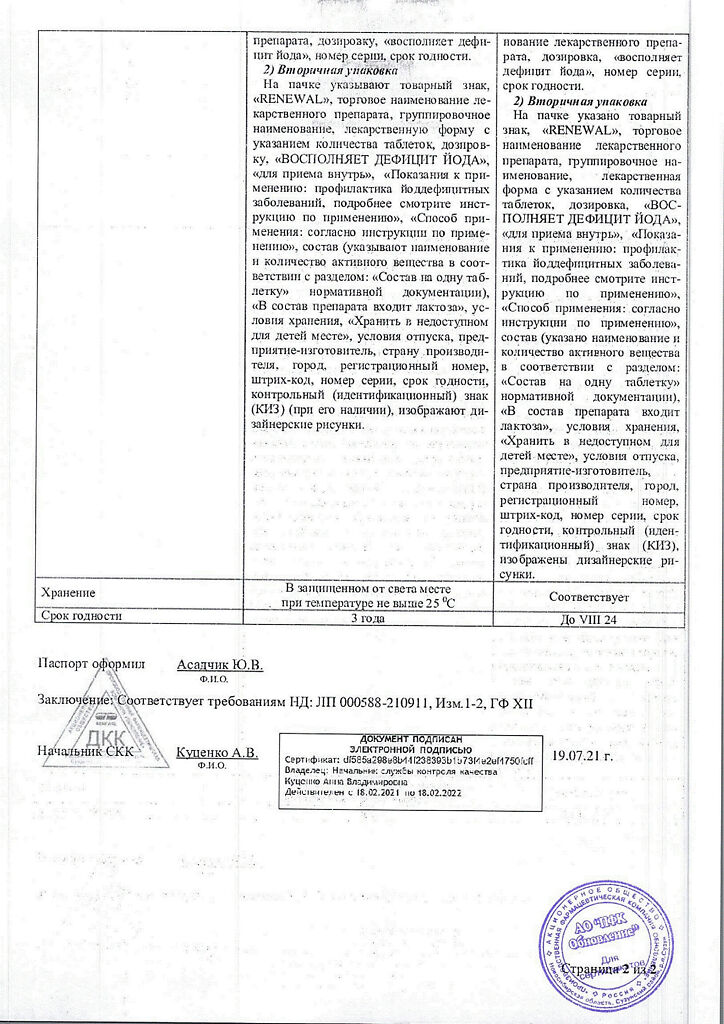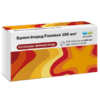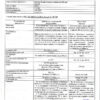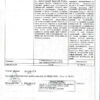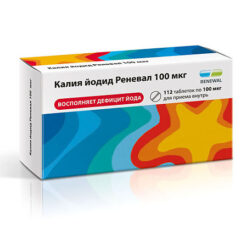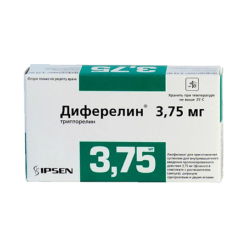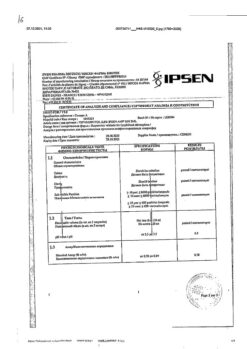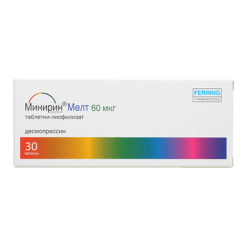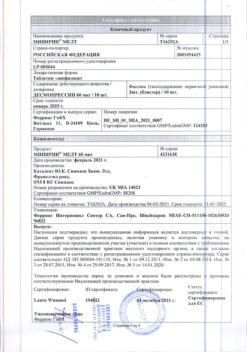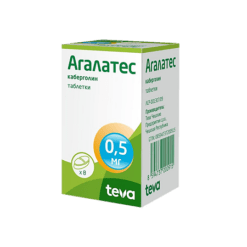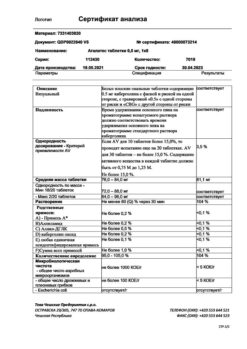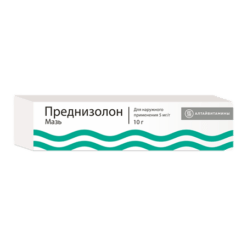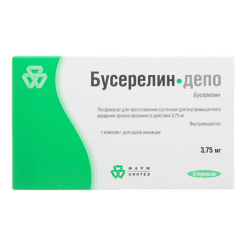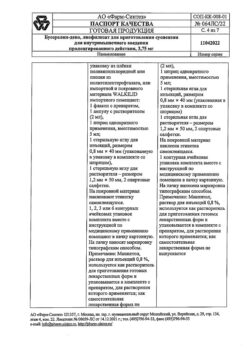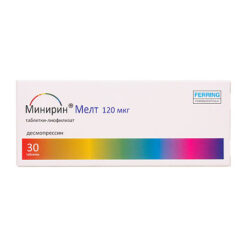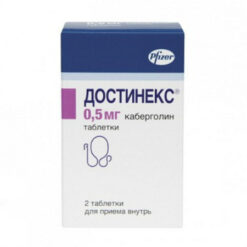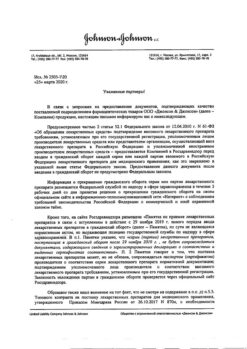No products in the cart.
Potassium iodide Reneval, tablets 200 mcg 112 pcs
€4.68 €4.16
Description
Pharmacodynamics
Iodine refers to the vital trace elements necessary for normal functioning of the thyroid gland. When iodide enters the epithelial cells of the thyroid follicle, iodine ions under the influence of the enzyme iodide peroxidase are oxidized to form elemental iodine, which is included in the molecule tyrosine.
At the same time, one part of the thyrosine radicals in thyroglobulin is iodized, resulting in the formation of thyronines, the main ones being thyroxine (T4) and triiodothyronine (T3). Thyronines form a complex with the protein thyroglobulin, which is deposited in the colloid of the thyroid follicle.
Iodine entering the body in physiological amounts, prevents the development of endemic goiter (associated with iodine deficiency in food), normalizes the size of the thyroid gland in infants, children and adolescents, and also affects the ratio of T3/T4, the concentration of thyroid hormone.
Pharmacokinetics
When taken orally it is quickly and completely absorbed in the small intestine and within 2 hours is distributed in the intracellular space.
It accumulates mainly in thyroid gland (iodide concentration more than 0.5 mg/g of tissue) as well as in salivary and mammary glands and gastric mucosa.
It is eliminated mainly by kidneys (trace amounts are determined in urine 10 min after intake, 80% of dose is eliminated within 48 hours, the rest – within 10-20 days), partially – with secretions of salivary, bronchial, sweat and other glands.
Indications
Indications
Prevention of iodine deficiency diseases, incl. endemic goiter (especially in pregnant and lactating women);
prevention of goiter recurrence after its surgical removal or after completion of goiter treatment with thyroid hormone preparations;
treatment of diffuse euthyroid goiter in newborns, children, adolescents and young adult patients.
Pharmacological effect
Pharmacological effect
Pharmacodynamics
Iodine is a vital trace element necessary for the normal functioning of the thyroid gland. When iodides enter the epithelial cells of the thyroid follicle, iodine ions under the influence of the enzyme iodide peroxidase are oxidized to form elemental iodine, which is included in the tyrosine molecule.
In this case, one part of the tyrosine radicals in thyroglobulin is iodinated, resulting in the formation of thyronines, the main of which are thyroxine (T4) and triiodothyronine (T3). Thyronines form a complex with the protein thyroglobulin, which is deposited in the colloid of the thyroid follicle.
Iodine entering the body in physiological quantities prevents the development of endemic goiter (associated with a lack of iodine in food); normalizes the size of the thyroid gland in newborns, children and adolescents; and also affects the T3/T4 ratio, the concentration of thyroid-stimulating hormone.
Pharmacokinetics
When taken orally, it is quickly and completely absorbed in the small intestine and distributed in the intracellular space within 2 hours.
It accumulates mainly in the thyroid gland (iodide concentration more than 0.5 mg/g tissue), as well as in the salivary and mammary glands, and the gastric mucosa. Penetrates well through the placenta.
It is excreted mainly by the kidneys (trace amounts are determined in the urine 10 minutes after administration, 80% of the dose is excreted within 48 hours, the rest within 10-20 days), partially with the secretions of the salivary, bronchial, sweat and other glands.
Special instructions
Special instructions
Before starting treatment, it is necessary to exclude malignant lesions of the thyroid gland, hyperthyroidism or nodular toxic goiter.
During drug therapy in patients with impaired renal function, hyperkalemia may develop (periodic monitoring of potassium concentration in the blood is necessary).
Due to the presence of lactose monohydrate in the drug, patients with rare hereditary diseases associated with galactose intolerance, lactase deficiency or glucose-galactose malabsorption should not take the drug.
Impact on the ability to drive vehicles and machinery
The drug does not affect the ability to drive vehicles or engage in other potentially hazardous activities that require increased concentration and speed of psychomotor reactions.
Active ingredient
Active ingredient
Potassium iodide
Composition
Composition
Active ingredient: potassium iodide 262 mcg (corresponds to 200 mcg iodine).
Excipients:
magnesium hydroxycarbonate (basic magnesium carbonate) – 0.0175 g
lactose (milk sugar) – 0.059738 g
microcrystalline cellulose – 0.02 g
magnesium stearate – 0.001 g
colloidal silicon dioxide (aerosil) – 0.0005 g
croscarmellose sodium – 0.001 g
Pregnancy
Pregnancy
During pregnancy and breastfeeding, the need for iodine increases. Potassium iodide is prescribed according to indications in cases where iodine intake from food is less than 150-300 mcg/day. The drug penetrates the placenta well and can cause the development of hypothyroidism and goiter in the fetus. Iodine is also excreted in breast milk.
Therefore, during pregnancy and breastfeeding, the drug should be used only in recommended doses.
Contraindications
Contraindications
– Hypersensitivity to iodine;
– severe thyrotoxicosis;
– latent thyrotoxicosis (when using doses exceeding 150 mcg/day);
– dermatitis herpetiformis;
– toxic adenoma, nodular goiter when used in doses of more than 300 mcg/day (with the exception of preoperative therapy to block the thyroid gland);
– hereditary diseases associated with galactose intolerance, lactase deficiency or glucose-galactose malabsorption.
Potassium iodide should not be taken for hypothyroidism, unless the development of the latter is caused by severe iodine deficiency. The use of the drug should be avoided during therapy with radioactive iodine, the presence or suspicion of thyroid cancer.
With caution
In patients with impaired renal function.
Side Effects
Side Effects
When using the drug according to indications in recommended doses, the occurrence of side effects is unlikely.
Allergic reactions may occur: rarely – skin rash, Quincke’s edema.
Interaction
Interaction
Concomitant use of antithyroid drugs weakens the effect of potassium iodide (mutually).
Potassium perchlorate and thiocyanate inhibit iodine uptake by the thyroid gland. Thyroid-stimulating hormone improves the absorption of iodine by the thyroid gland and stimulates the production of its hormones.
Concomitant use of angiotensin-converting enzyme inhibitors (including captopril, enalapril, lisinopril) increases the risk of hyperkalemia. High doses of iodine in combination with potassium-sparing diuretics can lead to hyperkalemia.
Simultaneous therapy with iodine in high doses and lithium preparations promotes the development of goiter and hypothyroidism.
Potassium iodide reduces the uptake of 131I and 123I by the thyroid gland.
Overdose
Overdose
When prescribing the drug at a dose of more than 150 mcg per day to patients who have lesions in the thyroid gland with functional autonomy, the development of iodine-induced hyperthyroidism is possible.
When treated with high doses of iodine (more than 1,000 mcg per day), in some cases iodine-induced goiter and hypothyroidism may develop.
Chronic overdose can lead to the phenomenon of “iodism”: metallic taste in the mouth, swelling and inflammation of the mucous membranes (rhinitis, conjunctivitis, gastroenteritis, bronchitis), acne, dermatitis, swelling of the salivary glands, increased body temperature, irritability.
Storage conditions
Storage conditions
In a place protected from light at a temperature not exceeding 25 ° C.
Keep out of the reach of children.
Shelf life
Shelf life
3 years.
Manufacturer
Manufacturer
Update of PFC JSC, Russia
Additional information
| Shelf life | 3 years. |
|---|---|
| Conditions of storage | In the dark place at the temperature not more than 25 °С. Keep out of reach of children. |
| Manufacturer | Update PFC AO, Russia |
| Medication form | pills |
| Brand | Update PFC AO |
Other forms…
Related products
Buy Potassium iodide Reneval, tablets 200 mcg 112 pcs with delivery to USA, UK, Europe and over 120 other countries.

